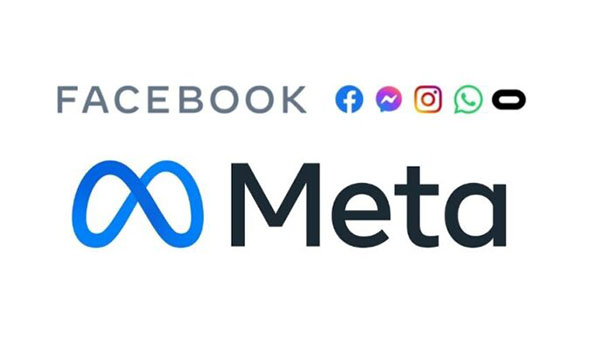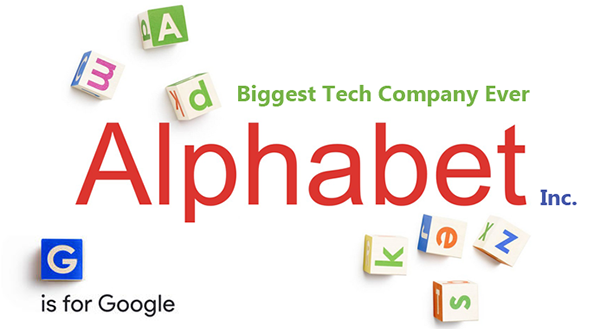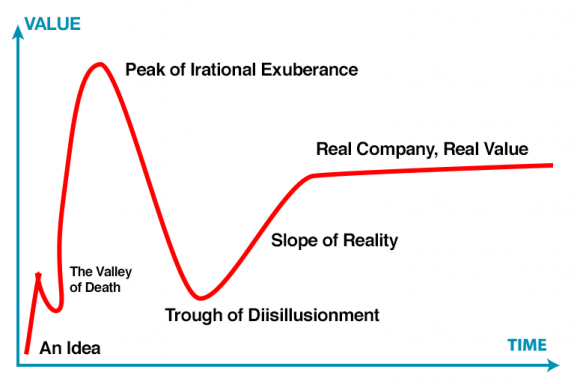
Naming is startup is hard. Harder than naming a baby you’ve yet to meet. Back in 2017 I posted a lesson in how to find a great name. Today (2021), Facebook shows us just how difficult it is to brand a company, especially an established company. Back in 2015, Google demonstrated the same mistakes.
Mistake #1 – Naming by Committee
No good name has ever been created by committee. Groupthink, compromises, and the general committee culture of not rocking the boat all lead to uninspiring, boring, if not stupid names. Meta???? Zuckerberg was a year old when Steve Jobs named his second startup “NeXT”. Mark, you are not the next Steve Jobs, and even if you were his successor, NeXT was never a great brand name.
Mistake #2 – Consolidation
Both Google and Facebook were giant, established holding companies when they decided to rebrand. Through a series of acquisitions, both had purchased many other well-known brands, and both found it a challenge to talk about the collection of the whole using just the biggest of the brands.
Back in the late 19th and early 20th centuries when a similar wave of consolidation took place, the naming solution was simple: General Motors. Standard Oil. Consolidated Edison.
Google tried a hipper version of this with Alphabet, but the problem for them is that the alphabet is what we teach to our two year olds. It’s not a serious name for a serious company. Neither was Google, but Google has a bit of whimsy and a bit of nerdy mathematics whereas Alphabet makes us all think of blocks.
Personally, I would have advised something that sounded big, old, and important such as Amalgamated Knowledge or Consolidated Data or if those sound too 19th Century, then something like Infinite Technologies.
Mistake #3 – Other Connotations
For Facebook, the problem with Meta is that they think it reminds us of the metaverse, a term invented by scifi writer William Gibson in his 1992 novel Snow Crash. Sorry Mark, but while I’ve read more than my fair share of science fiction, I only learned this term today after making fun of the new name in a big Zoom conference filled with bigger scifi nerds than me.
To me, and most college educated people, the term meta is at best a term we use when one idea talks about itself, but with slight negative connotations of ivory tower concepts that we’ve long forgotten from school.
Worse yet (for Facebook), my Twitter feed was filled with jokes about metabolism, metamorphosis, and metastasis.
When picking a name, check for negative connotations and use a crossword dictionary to double check that your name isn’t a prefix or suffix or middle of another word that you don’t want to be associated with.
+ Hubris
The last mistake is simply the hubris that makes the team at Google and Facebook think they will successfully rebrand a company that is in the middle of a backlash from bad behaviors. As if the rebrand will make billions of people forget about those actions.
Google was already a monopoly when it rebranded as Alphabet, with that early backlash caused in part by their spree of acquisitions. It hard to remember the internet of 2015, but Bing was already history, YouTube with no rival, and Android already the largest mobile phone operating system.
Facebook seems to get called over to Washington DC every few months to question their corporate behavior. Rebranding to Meta certainly doesn’t make them seem like a humble move. If I had Mark’s ear inside the Capitol, I’d suggest (in jest) he rebrand to Standard Oil, as then he could tell Congress they already broke up the company once and can’t do it again.
So…
Meanwhile, the new Meta company dreams of ruling the upcoming metaverse. To imagine that, picture the OASIS from Ready Player One. With that dream in mind and with so many people seeing Facebook as the bad guys of the internet, Mark and team clearly missed the ideal choice for their rebrand: IOI.

















